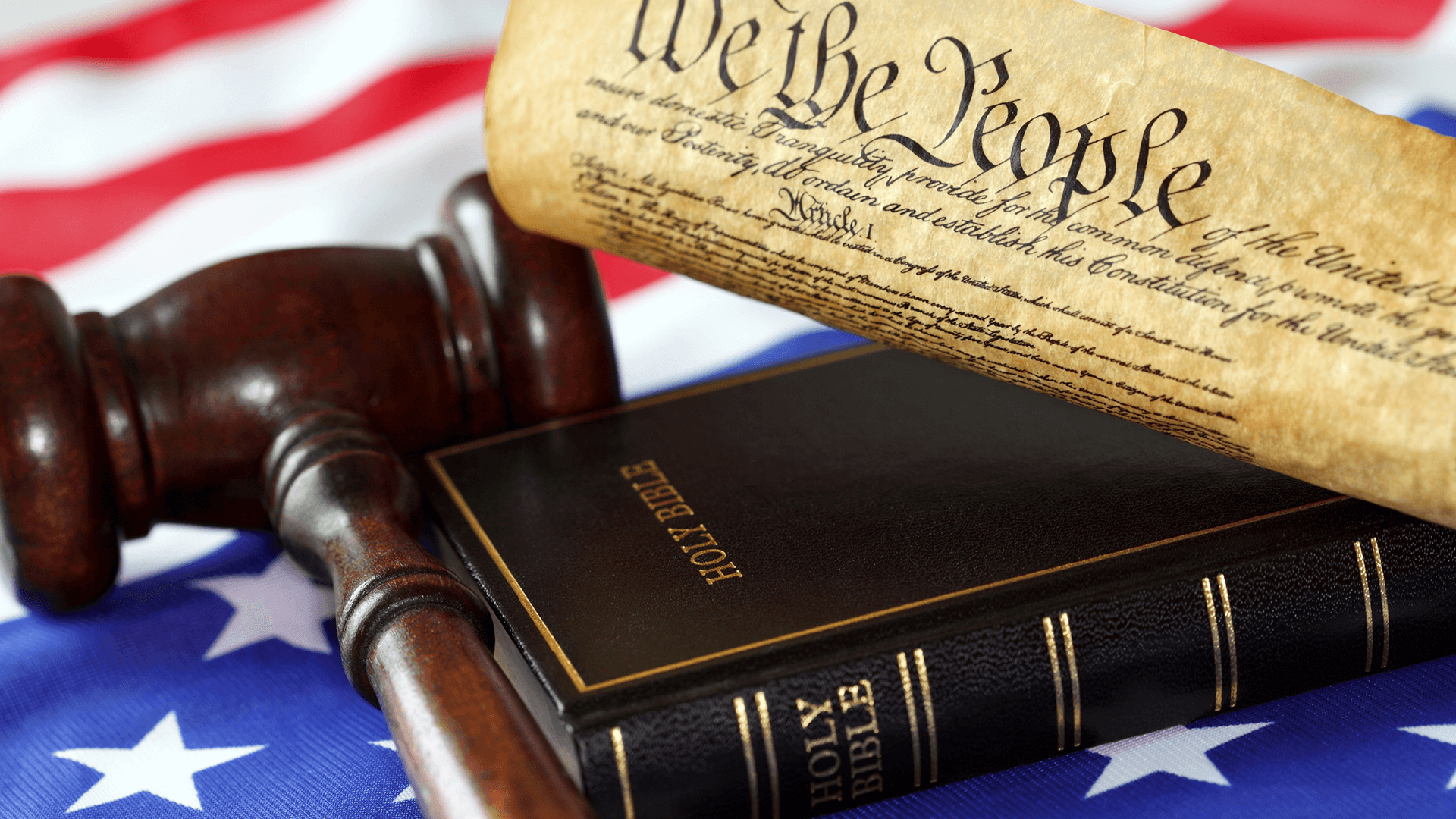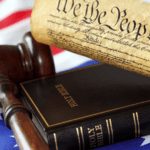This is Part of the series Why Religious Liberty Matters
Religious Liberty Beyond Borders:
A Biblical View on Freedom and Faith
Religious liberty is not merely a legal concept; it is rooted in the biblical truth that all humans are made in the image of God. This divine imprint, seen in Genesis 1:27, establishes every person’s inherent worth and dignity and reflects our capacity to seek and honor our Creator freely. From a biblical worldview, religious freedom is an extension of God’s design, intended to honor His image in us and acknowledge our capacity to choose and love Him willingly. This perspective also relates to the Deuteronomy 32 worldview, a concept examined by Michael Heiser in The Unseen Realm, which suggests that God originally allotted the nations to lesser spiritual beings but chose Israel as His own people, designed to serve as a light to the world (Heiser, 2015). This unique calling points to a divine model for freedom and worship that extends beyond earthly systems, reminding us that ultimate allegiance belongs to God alone.
Understanding religious liberty through these theological principles brings fresh insight to our perspective, especially when comparing how different nations approach this freedom. This post explores how the U.S. model of religious liberty compares with other nations, what lessons we can draw from international approaches, and how these insights strengthen the call for Christians to cherish and defend freedom rooted in God’s image. As Proverbs 14:34 reminds us, “Righteousness exalts a nation, but sin is a disgrace to any people” (Legacy Standard Bible, 2021).
Global Perspectives on Religious Freedom
Western democracies generally protect religious freedom but differ in how they balance it with other societal values. France, for instance, enforces laïcité, or strict secularism, which restricts religious symbols and expressions in public spaces to ensure neutrality. While this approach aims to create an unbiased public sphere, it often curtails religious minorities’ ability to openly express their faith. France’s model contrasts sharply with the U.S. system, where the Free Exercise Clause allows individuals and institutions to live out their faith publicly, reflecting the American belief in individual freedom rooted in a biblical understanding of human dignity.
In the United Kingdom, where the Church of England is the official state religion, broad religious expression is allowed alongside a secular approach in public institutions. This hybrid model allows for both state-recognized religious identity and secular governance, creating tension when religious beliefs challenge modern secular policies, particularly in education and health care. The takeaway for American Christians is significant: the U.S. emphasis on individual freedom in every sphere of life is a unique protection that aligns with the biblical view of human dignity and freedom.
Meanwhile, countries like Canada and Australia offer legal protections for religious freedom but tend to prioritize progressive social values over religious exemptions. In Canada, recent rulings have limited religious institutions’ ability to hire or function based on faith, especially when anti-discrimination laws come into play. These cases illustrate the tension between religious liberty and cultural pressures that challenge traditional beliefs. The global view serves as a reminder that religious liberty, while cherished, is not universally guaranteed, urging Christians to remain vigilant and proactive in advocating for this freedom, which reflects the divine image in every person and honors God’s design for human dignity.
This perspective is enriched by the Deuteronomy 32 worldview, as explored in The Unseen Realm. Heiser points to a spiritual arrangement in which God allotted the nations to other spiritual beings while choosing Israel as His inheritance (Deuteronomy 32:8-9). Israel’s purpose, therefore, was to be a beacon of God’s light to the nations, a calling that extends to Christians today. This framework emphasizes that religious freedom is ultimately a matter of allegiance to God, beyond any earthly power, as believers are called to worship the true Creator amid a world of competing authorities.
Lessons from International Law
Examining religious liberty laws across nations offers crucial lessons for American Christians. One clear takeaway is the importance of a robust legal framework that explicitly defends religious freedom. In countries with more adaptable laws, such as Canada, religious freedoms can be restricted when they conflict with shifting social values. For instance, Canadian Christians have seen traditional rights limited when anti-discrimination policies supersede religious practices, particularly regarding gender and sexuality. This highlights the need for U.S. laws to protect faith-based practices, even when they diverge from prevailing cultural norms, mirroring the biblical principle that true worship must be freely given, as seen in Romans 14:5: “Each person must be fully convinced in his own mind” (Legacy Standard Bible, 2021).
Another lesson is the power of judicial interpretation. In France, courts often uphold secularism over religious expression, demonstrating how a nation’s judiciary influences religious liberty. In the U.S., Christians are reminded of the need to support leaders and judges who understand religious freedom as an inherent right rooted in the image of God. This aligns with the Deuteronomy 32 worldview, which highlights the spiritual reality behind earthly authorities. As Heiser explains, the nations were allotted to lesser beings, but Israel (and ultimately the Church) serves under God’s direct authority, called to be a light amid spiritual darkness (Heiser, 2015). In advocating for religious freedom, American Christians fulfill this calling by reflecting God’s truth and justice in a world that often prioritizes secular agendas over divine principles.
Finally, grassroots advocacy proves essential. In places where religious freedom has weakened, local communities often organize to preserve their rights. In Australia, for example, Christian groups have successfully lobbied for conscience protections in schools and health care, demonstrating the importance of local engagement. Proverbs 31:8-9 calls believers to “speak up for those who cannot speak for themselves… defend the rights of the poor and needy” (Legacy Standard Bible, 2021), encouraging Christians to actively participate in preserving the freedom to worship and serve God according to His Word.
Through these international lessons, American believers are reminded to cherish and protect religious liberty as a precious gift rooted in God’s image. Just as Paul asserted his rights as a Roman citizen in Acts 22:25, Christians today must advocate for laws that safeguard religious liberty, recognizing that this freedom reflects our Creator’s design for His people to worship Him freely.
Reflective Questions
Reflecting on global approaches and biblical principles, consider these questions:
- How does the experience of countries like France and Canada shape your view of religious liberty in the U.S., particularly regarding public expressions of faith?
- In what ways can Christians respond to legal and social pressures on religious liberty, taking inspiration from the experiences of believers in other nations?
- How does the understanding that all people are made in the image of God, alongside the Deuteronomy 32 worldview, shape our commitment to defending religious freedom in a pluralistic society?
These questions prompt us to reflect on God’s design for human dignity and freedom, understanding that religious liberty is both a privilege and a responsibility.
Conclusion
Examining religious liberty internationally reveals that this freedom, while valued in many nations, is uniquely rooted in the biblical truth that all people are made in the image of God. This foundational belief affirms the worth and dignity of each individual, providing a theological basis for defending religious freedom. Michael Heiser’s insights in The Unseen Realm remind us that religious liberty extends beyond national borders, connected to God’s cosmic plan for His people to live in freedom, bearing witness to His truth and light in a world shaped by spiritual powers and authorities.
For Christians, the Deuteronomy 32 worldview deepens our understanding of religious liberty as part of a larger calling. Religious freedom is not just a personal right but a responsibility to stand as God’s representatives on earth, illuminating the path to true worship in a culture that often questions the source of truth. As Jesus reminds us in John 8:32, “You will know the truth, and the truth will make you free” (Legacy Standard Bible, 2021). This freedom is about more than individual rights; it’s an invitation to bear witness to the gospel, declaring the eternal truth of God’s kingdom.
Looking forward, American Christians are called to live as “ambassadors for Christ” (2 Corinthians 5:20), preserving a society where all are free to worship according to their convictions. Religious liberty is a profound responsibility that requires not only legal defense but active participation, standing as a beacon of God’s love and truth in every sphere of life.
Chris Reighley is a Colson Fellow and a leader grounded in faith, family, and mission. With a career spanning servant leadership, digital marketing, and servant leadership, he is driven by a passion for empowering others. He is pursuing an Executive Master’s at The Bush School of Government and Public Service at Texas A&M and a Master of Arts in Biblical Studies from Redemption Seminary. Through Shoe Leather Gospel, Chris is dedicated to combating biblical illiteracy and mentoring future leaders.

References
• Heiser, M. S. (2015). The Unseen Realm: Recovering the Supernatural Worldview of the Bible. Lexham Press.
• Legacy Standard Bible. (2021). 2nd ed.
• U.S. Supreme Court. (2020). Our Lady of Guadalupe School v. Morrissey-Berru, 591 U.S. ___. • U.S. Supreme Court. (2021). Fulton v. City of Philadelphia,





